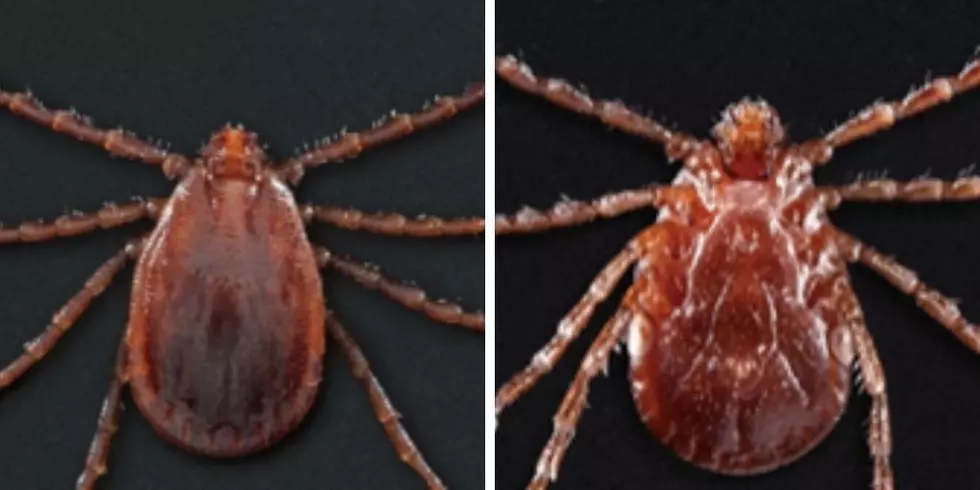
Self Cloning Ticks Attacking Animals In Kentucky
Photo Credit: Center for Disease Control
Recently, my son and his girlfriend moved into our garage. They both just graduated from Indiana University. Our house is a temporary stop until they figure out what they want to do and where they want to go. Basically, until they can find teaching jobs.
Since they've been here, I realized that my future daughter-in-law is deathly afraid of ticks. She gives me an update on the number of ticks she has found on herself, my son and their dog, Mac is a Great Dane puppy that weighs 150 lbs and already stands about 3 1/2 feet tall.
Coming from Bloomington, IN and Indianapolis, IN, before that, she has primary lived in the city. Ticks haven't really been an issue, until now. I can understand why she is afraid of ticks. They can make you very sick. My husband even had an uncle die from a tick bite a few years ago. But, since I grew up in the country, I am used to the fact that ticks are a part of life outdoors.
The main tick concern, for her, is her dog. She's very paranoid about Mac getting ticks on him the could hurt him. I told her that dogs get ticks all of the time and that it does't effect them like people. That's what we thought growing up with dogs as pets. I was wrong.
A breed of ticks, that can reproduce without mating, are attacking pets and livestock in Kentucky. Large numbers of these ticks have been found all over the state and in 10 other states as well. Indiana and Illinois are not on the list of states affected, yet.
According to Jonathan Larson, a UK extension entomologist in an interview with the Lexington Herald Leader,
This tick is an aggressive biter and frequently builds intense infestations on domestic hosts that can cause stress, reduced growth and severe blood loss. One reason for their rapid buildup is that the female ticks can lay eggs without mating. It only takes a single fed female tick to create a population of ticks. Potentially, thousands can be found on an animal.
Aside from cattle, livestock including horses, sheep, goats and chickens can be affected by the ticks, as can cats and dogs.
Humans can also be affected. Ticks carry viruses. Just like other animals, the viruses the ticks carry can be spread to humans through tick bites. Isn't that all we need right now?
The good news is that the Asian longhorns tick doesn't seem to be that attracted to human skin. And, for now, all of the ticks that have been tested for serious viruses have come back negative. The CDC is continuing to research and monitor the situation.
The CDC continues to encourage you to wear insect and tick repellent when outdoors. Also, after being outside, check yourself, your family and your pets for ticks.
So, I'll be checking my granddog, Mac, for ticks, everyday. Oh, and I have since apologized to Ashlynn for saying she was a city girl who had to get used to living in the county. :-)
Need more info? The Mayo Clinic posted this video a year ago.
[SOURCE: Herald Leader/CDC]

gallery galleryid="71:655014" gallerytitle="What is Up With These Weird Looking Trees In Spencer County?"]

